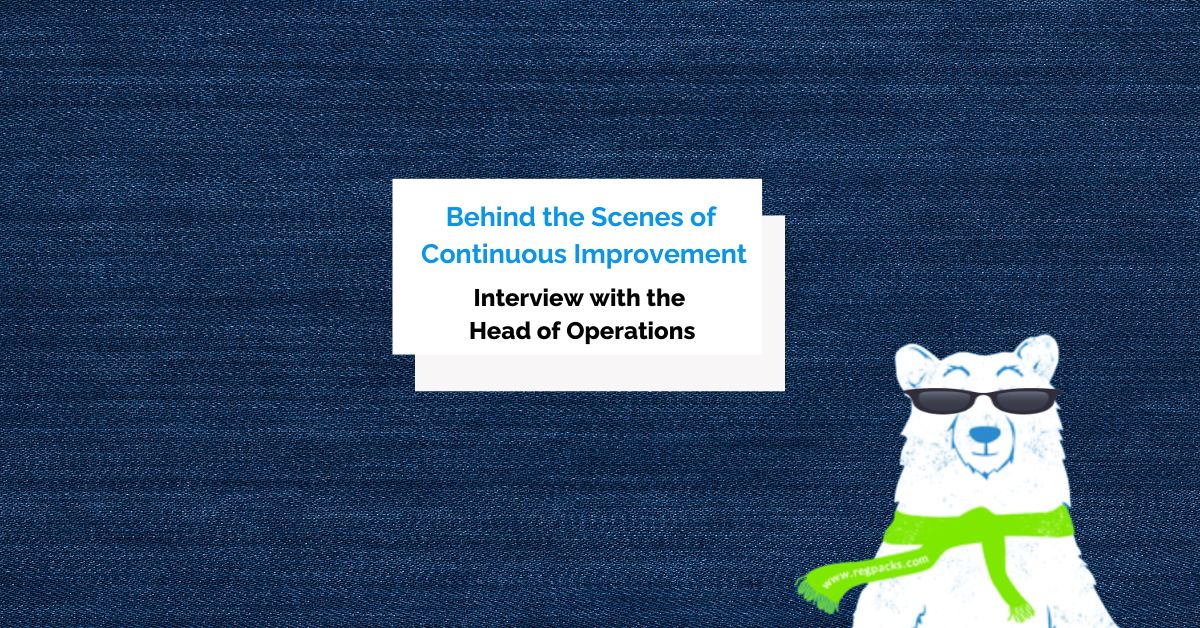Events are an extremely lucrative marketing tool. In fact, Verified Marketing Research projects that the events industry is growing at a staggering rate and will be worth $2.194 trillion by 2028.
Since it has so much potential for gaining qualified leads, earning revenue, and scaling your business, it’s crucial to treat your event marketing with great care.
The tools you use—including event registration software—can make the difference between hosting mid-tier events and successful ones that garner the attendance and engagement you’re looking for.
This article will cover ten of the best software tools for event registrations—simple form builders and all-in-one customer management tools alike.
- Regpack
- Bizzabo
- Ticketbud
- Whova
- WildApricot
- Jotform
- Eventbrite
- Splash
- Amilia
- Cvent
- The Best Event Registration Tools Optimize Your Attendee Experience
- Conclusion
Regpack
Regpack is an all-in-one suite of registration, payment, and customer management tools.
Regpack’s event registration software makes registering and paying for events simple and fast—which means brands who use Regpack can count on scalable growth through more timely, completed applications.
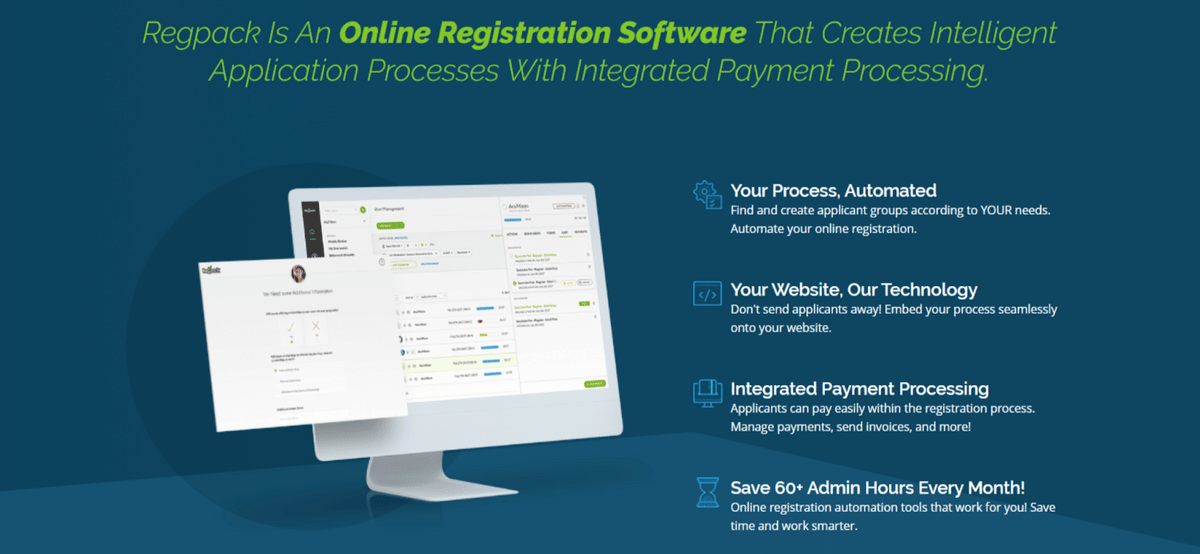
Source: Regpack
The platform helps you generate reports and guest lists quickly, along with post-event surveys, discounts, automated emails, and conditional logic to help create a simplified registration and promotion process.
This gives users more time to spend creating an event strategy, running events, and interacting with attendees.
Regpack’s conditional logic software personalizes every registration experience.
Brands can set up optimized registration forms that collect necessary information based on registrants’ answers.
As a result, your registration process is flexible enough to take just the right amount of time for each registrant.
You can also embed registration and payment forms directly into your website, which makes it easier for new customers.
Many customers get spooked when directed to a third-party website to enter their personal information, which is why Regpack works within your brand’s site.
And Regpack is more than a registration tool.
Our platform also has advanced payment processing and recurring billing functionality, which lets you accept payments dependably and with customizable settings.
Regpack also features a custom client database to help you manage your customer data and ongoing relationships.
| Pros | Cons |
|
|
Price: Plans start at $125 per month, per administrator
Bizzabo
Bizzabo’s Event Experience OS focuses on lowering the “Event Impact Gap,” which is the lack of ways to measure the ROI of hybrid events.
The platform’s goal is to provide more of a human experience by using AI to personalize event experiences for attendees.
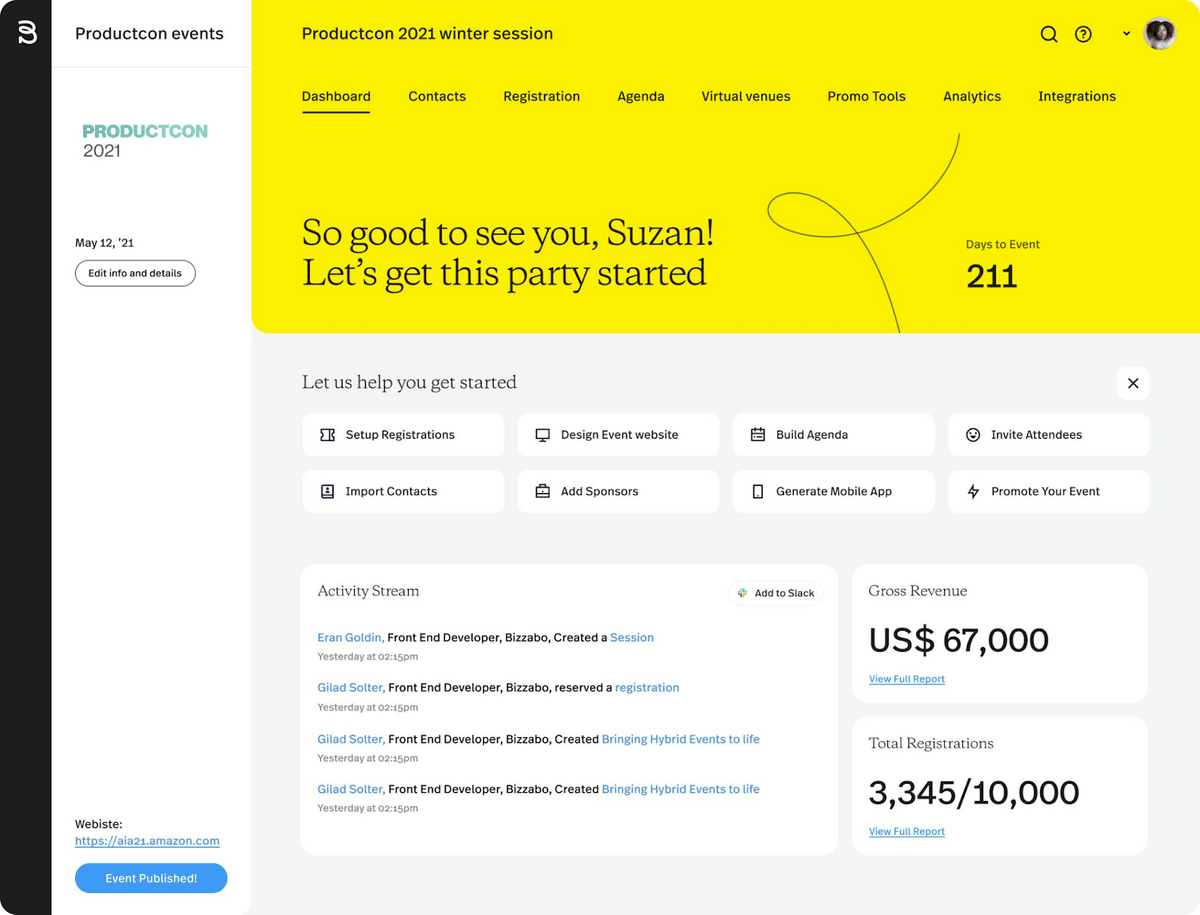
Source: Bizzabo
While it comes with a hefty price tag, Bizzobo is meant to be an all-in-one software to help large businesses create immersive, personalized experiences for both virtual and in-person guests.
| Pros | Cons |
|
|
Who Bizzabo is best for: Enterprise businesses that run a lot of high-ticket, hybrid events.
Price: From $15,000 per year (request a demo for an estimate)
Ticketbud
Ticketbud is an online ticketing platform designed for large events and festivals.
The software is designed as an all-in-one event management tool, from building a custom event website, to promotion, to the day of the event.

Source: Ticketbud
Unlike most event registration tools, Ticketbud doesn’t charge a monthly or yearly subscription. Instead, it charges a flat rate per registration.
| Pros | Cons |
|
|
Who Ticketbud is best for: Organizations holding large, in-person events and festivals.
Ticketbud may also be a good choice if you don’t want to wait until after the event to have access to registration fees.
Price: Flat ticketing fee of 2.0% + $0.99 per ticket and a 2.9% payment processor fee.
Whova
Whova is an event management app that prioritizes audience engagement. The platform claims to be an all-in-one solution for modern event management.
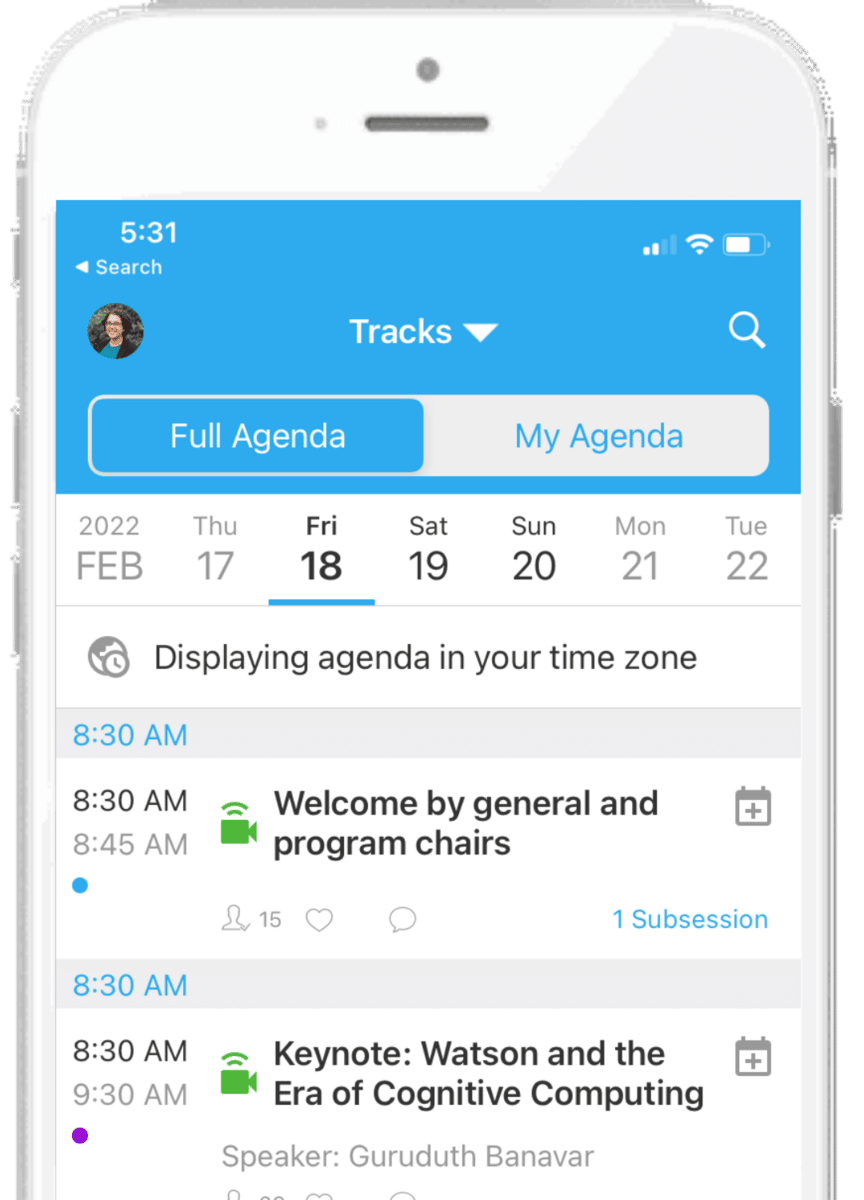
Source: Whova
Attendee-centric features probably constitute Whova’s best feature. Virtual attendees can network using the app and review recordings of live events later.
Live attendees can also use the app to take notes, keep a personal agenda during the event, check interactive maps of the venue, and participate in polls.
| Pros | Cons |
|
|
Who Whova is best for: Small businesses looking for audience engagement, and brands running educational events.
Price: Pricing isn’t provided by Whova’s website. You’ll need to request a demo to receive a quote.
WildApricot
WildApricot by Personify is a cloud-based membership management platform.
It provides customer relationship management (CRM) tools, a website builder, payment processing, and event management features.
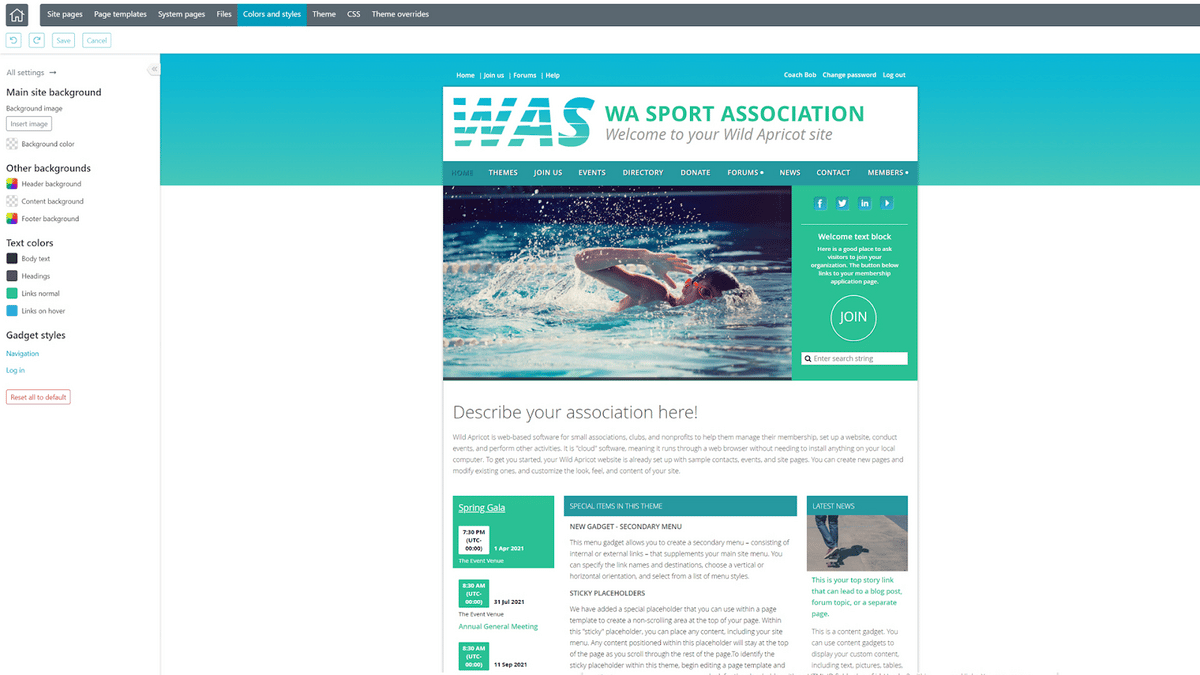
Source: G2
Wild Apricot lets users create an event listing with images, descriptions, and customized registration forms. Attendees can then register and pay for events online.
Users can create an event site using WildApricot’s platform, where new events will automatically be listed in a calendar for visitors to see.
WildApricot also lets users automate event promotion with event emails, automatic payment tracking, and a free mobile app for member check-ins.
| Pros | Cons |
|
|
Who WildApricot is best for: Clubs and organizations that need a flexible, do-it-yourself system without more comprehensive tools.
Price: Free for up to 50 contacts. Paid plans start at $48 per month.
Jotform
Jotform is a free online form builder. Its forms have many uses—and the platform comes with more than 10,000 templates to get you started—from order forms, to registration forms, to survey templates.
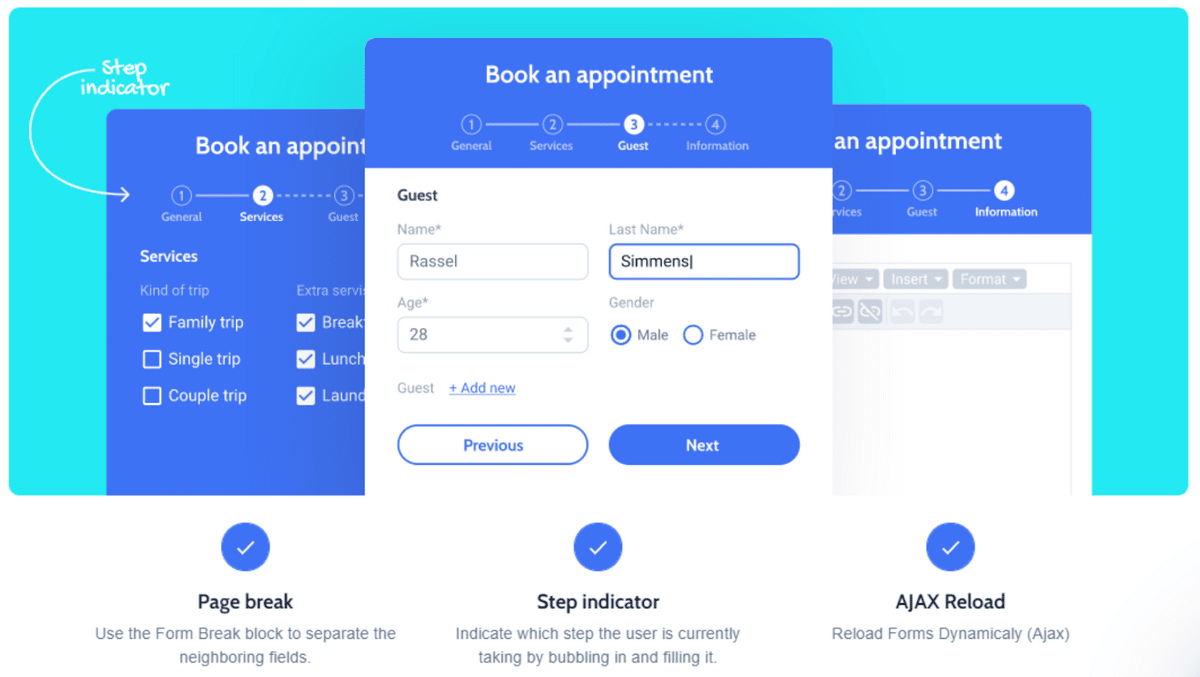
Source: G2
New users can build forms quickly without any knowledge of code. The forms are customizable with branded logos, colors, and fonts.
They can also be integrated with popular business apps like project management tools and CRMs.
Jotform also makes it possible for brands to collect payments directly through its forms, which makes it possible to use the platform as an event registration tool.
| Pros | Cons |
|
|
Who Jotform is best for: Brands who want a customizable solution for building registration forms.
Price: Free for up to five forms per month. Paid plans start at $24 per month.
Eventbrite
Eventbrite is a popular ticketing and event management tool. Businesses use it to organize events and sell tickets, while consumers use the platform to discover events in their area.
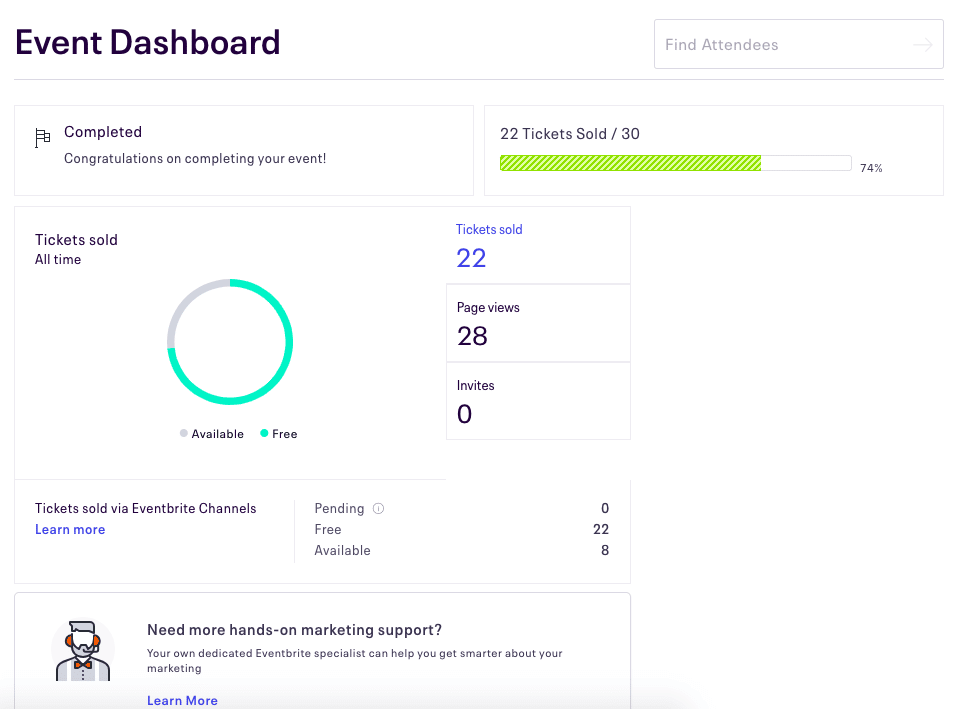
Source: G2
Many events of all shapes and sizes can be managed through Eventbrite, including concerts, conferences, festivals, and workshops.
The platform provides a mobile app that lets organizers and attendees access event information.
Event managers have access to self-service RSVP tracking, ticket selling, and email marketing tools.
| Pros | Cons |
|
|
Who Eventbrite is best for: Brands who want their large events to be discoverable by a general audience.
Price: Eventbrite charges a flat rate per ticket, with the rate dependent on which subscription tier you purchase. For instance, the Essentials plan charges 2% + $0.79 per ticket.
Splash
Splash is an event marketing platform aimed at virtual, in-person, and hybrid events.
The platform lets users create an event page, send promotional emails, and measure audience data to capture event ROI.
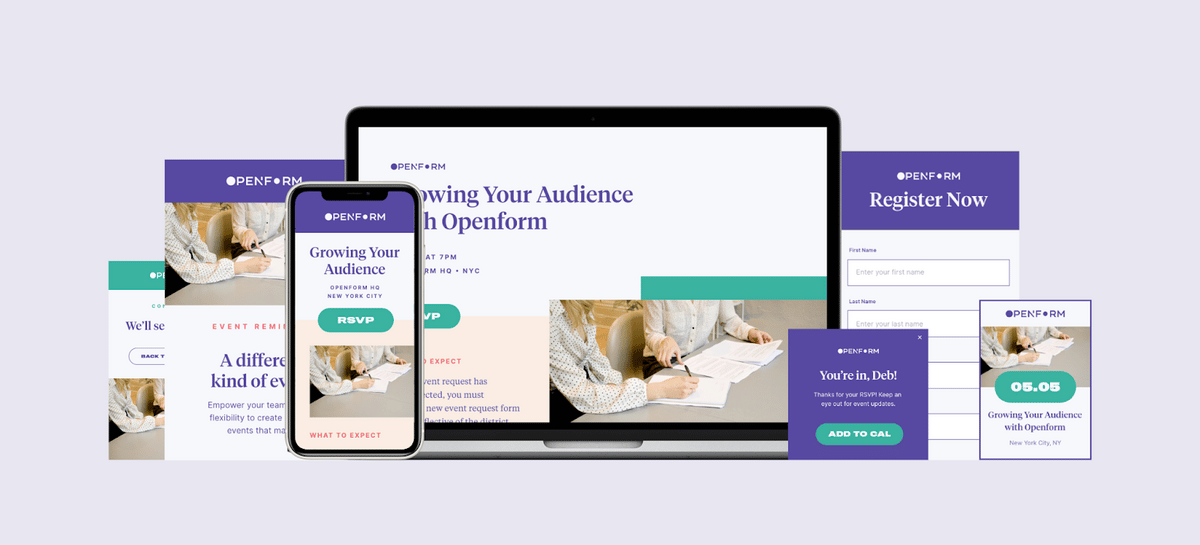
Source: G2
The purpose of Splash is to blend data and design to track important data points while appealing aesthetically to the brand’s audience.
Splash’s tool includes features like RSVPs and smart guest lists to help optimize audience touch points.
It also integrates with leading CRM tools to help brands track attendee data more effectively.
| Pros | Cons |
|
|
Who Splash is best for: Brands with a big budget who are looking for granular data analytics in their event marketing tool.
Price: Free for personal use and some small business events. Paid plans start at $12,500 per year.
Amilia
Amilia is an eCommerce platform built for events. The software’s goal is to help organizations engage with their communities.
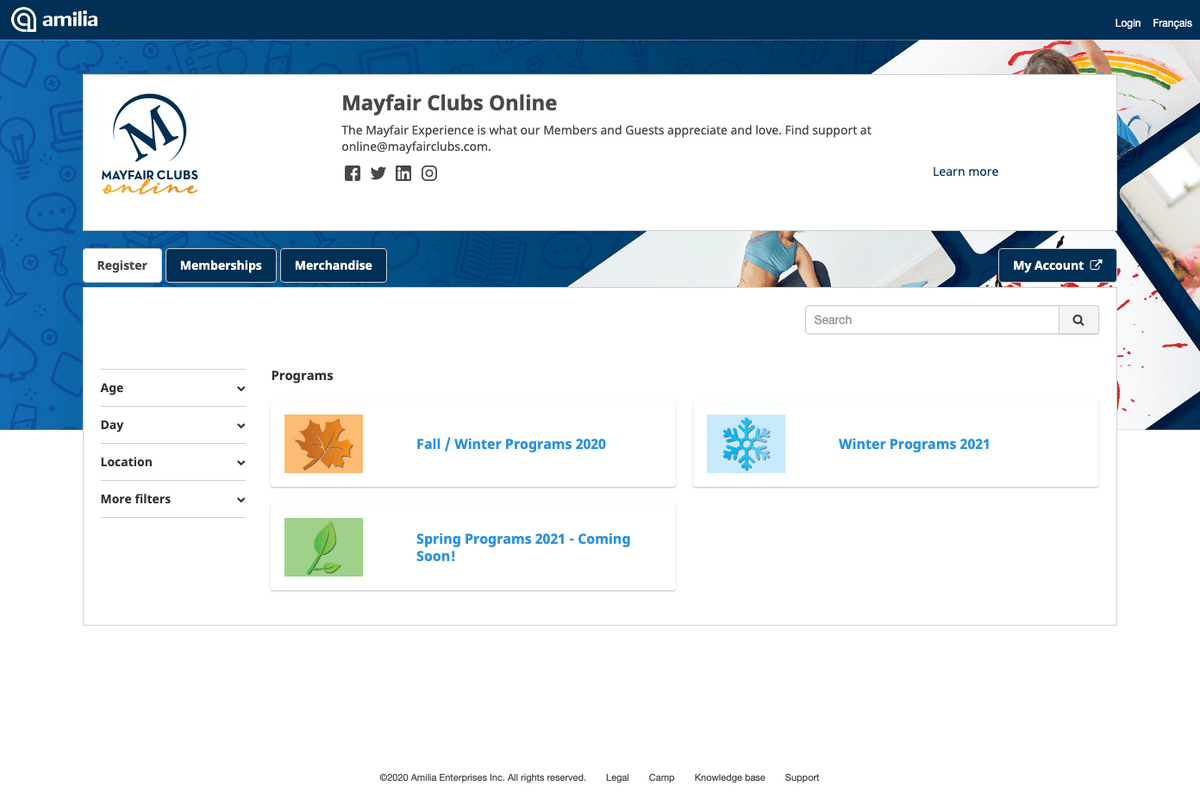
Source: G2
Brands using Amilia can sell registration seats and memberships, manage scheduling, and track attendee data in real-time.
Amilia’s central user profile database also lets brands connect with clients and engage with their target audience.
Amilia lets brands create their own online stores to sell memberships and registration tickets.
The tool is also linked to the SmartRec app store—which is essentially a collection of native integrations with popular apps so that brands can link Amilia to the tools they already use.
| Pros | Cons |
|
|
Who Amilia is best for: Companies that want to sell memberships or tickets and don’t already have their own eCommerce website.
Price: No free plan. Paid plans start at $99/month.
Cvent
Cvent is an event management tool for mid-sized and enterprise businesses that host virtual, in-person, hybrid, and webinar events.
The platform is essentially a suite of event-related tools, each designed to help event marketers create events and engage with their target audience.
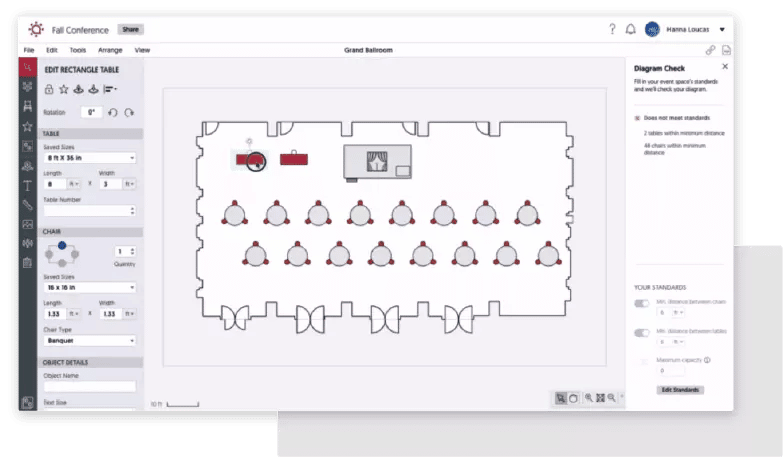
Source: Cvent
The Cvent Attendee Hub lets companies build custom events, while the Cvent Studio helps brands produce webinars and virtual content.
And the Event Management tool automates standard marketing tasks like sending follow-up and reminder emails, venue sourcing, and capturing leads.
Finally, Cvent Integrations helps users integrate the platform with the tools they already use, including HubSpot, Zoom, and Google Analytics.
| Pros | Cons |
|
|
Who Cvent is best for: Mid-sized and enterprise businesses that host complex events.
Price: Pricing information isn’t available on Cvent’s website. You’ll need to request a demo to get a customized quote.
The Best Event Registration Tools Optimize Your Attendee Experience
So, what should you look for in an event registration tool?
We recommend taking the following into consideration when making your choice:
Flexibility and ease of use. A simple registration process is paramount if you want to increase event attendance. You want your customers to have an easy experience and as few obstacles as possible.
Customizable registration forms with conditional logic. Look for a tool that not only lets you design forms to your specific needs, but also uses conditional logic to take information from attendees without making them scroll through pages of questionnaires that don’t apply to them. Again, it’s all about minimizing obstacles for your registrants.
Embeddable forms on your website. It’s easier to gain your customers’ and attendees’ trust if you don’t send them to a third-party site to complete their payment and registration.
Strong email marketing automation. Much of the work involved in event management is staying in contact with your attendees. Choose a tool that has robust email marketing features that can save you time and ensure no registrants fall through the cracks.
There are many software options available on the market, each with its own strengths and weaknesses. Start by considering your own needs, goals, and budget.
Then, look for a tool with enough robust features to help you use event marketing to scale your business effectively.
Conclusion
We hope that this overview of the best event registration tools in the market has been useful to you.
If you’re interested in Regpack to help you reach your event marketing goals, start your free trial today!




